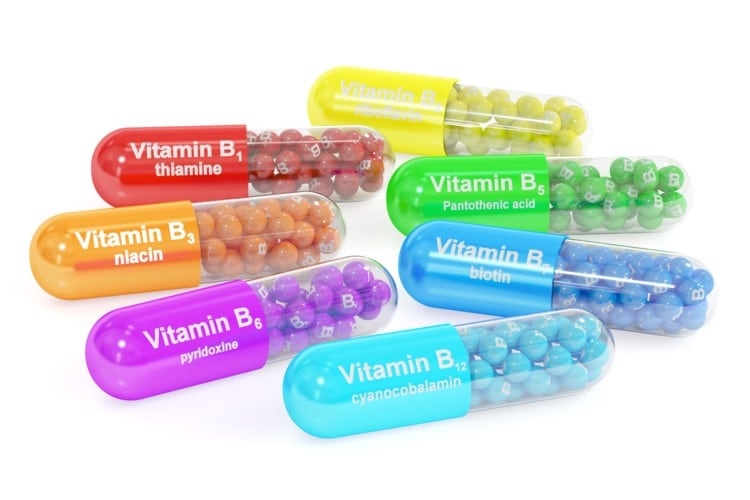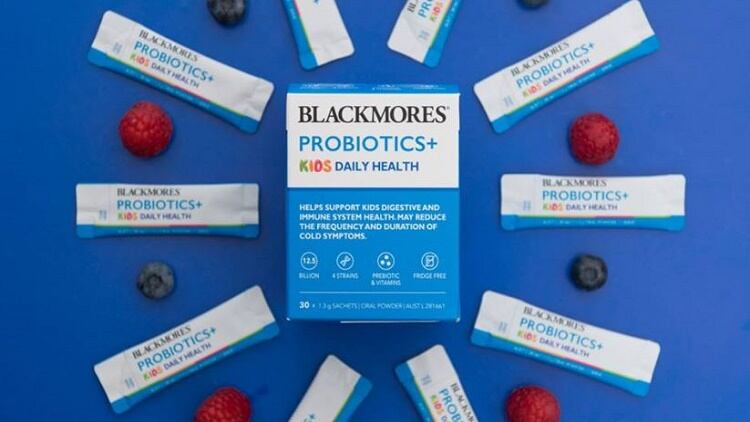The study investigated the effects of Blackmores’ Executive B Stress Formula on work-related stress, as well as its effects on mood, personality, cardiovascular, and neuroimaging outcomes.
The findings were published in scientific journal Frontiers in Nutrition.
A total of 137 adults aged 30 to 65 years old took part in the study.
In the randomised, double-blind, and placebo-controlled study, the experiment group consumed the supplement for two tablets daily, one at breakfast and one at lunch, for six months.
The placebo group were given a small amount of glucose and riboflavin (2mg of B2).
All the subjects then attended a baseline testing session and a six-month post-treatment follow-up, where they needed to complete a food frequency questionnaire and psychometric measures, with blood samples taken.
A total of 108 subjects returned for the follow-up session, in which 54 were from the experiment group.
Findings show that high B-vitamin multivitamin supplementation may strengthen neurocircuitry within the brain regions that are associated with reward and emotion.
In contrast, the placebo group saw a significant decrease in the functional connectivity between the two regions.
Stronger connections
The strengthened neurocircuitry was observed between the right caudate and the posterior cingulate cortex (PCC) in the brain.
The caudate is part of the striatum, which is involved in reward processing and is in turn, a key driver of pleasure and motivation.
On the other hand, the PCC is a highly connected and metabolically active brain region.
“Although the supplement showed no additional improvement in work-related stress, or psychological and mood outcomes, there was an effect on functional connectivity between the right caudate and PCC, the core of the DMN.
“The increase in connectivity between the caudate and PCC observed following high-B-vitamin multivitamin supplementation may, therefore, reflect a strengthening of neurocircuitry within brain regions that are associated with reward and emotion,” the researchers explained.
Placebo effect and future study
The researchers noted that placebo effect was at play during the study and future study should consider a placebo run-in methodology to reduce its effect.
A placebo effect was seen as both active and placebo treatment groups showed improvement in psychological and mood.
“In line with these findings, improvements in mood, psychological, and workplace stress outcomes occurred following high-B-vitamin multivitamin supplementation.
“However, despite the rigorous randomised, placebo-controlled, double-blind parallel groups design of the study, a similar improvement was evident for the placebo treatment group, indicating a notable placebo effect,” the researchers said.
They believed that an improvement across both treatment groups could be due to an intrinsic motivation within participants to improve their negative mood status, and manage workplace stress more effectively.
As such, they said that future studies should consider a placebo run-in methodology to reduce the placebo effect.
“The current results do not allow us to make any conclusions about the subjective effects of B Vitamins on stress given the large placebo effect.”
“In this regard the subjective component, for example, the self-reporting of questionnaire data, may be best considered as a failed trial with future research needing to employ a placebo run-in in order to minimise the placebo effect.
“This would then allow a more rigorous assessment of whether B vitamins improve subjective work stress.”
Previous studies
Prior to this study, other studies have demonstrated a relationship between B vitamins (B1, B2, B3, B5, B6, and B12) and improved mood.
For example, a study published in Psychopharmacology in 2010 found that B vitamin supplementation has led to improved ratings of stress and mental health.
Another study funded by Blackmores also found that the same Executive B Stress formula may support brain health and disease prevention.
Source: Frontiers in Nutrition
Increased Posterior Cingulate Functional Connectivity Following 6-Month High-Dose B-Vitamin Multivitamin Supplementation: A Randomized, Double-Blind, Placebo-Controlled Trial
https://doi.org/10.3389/fnut.2019.00156
Authors: Luke A. Downey et al





